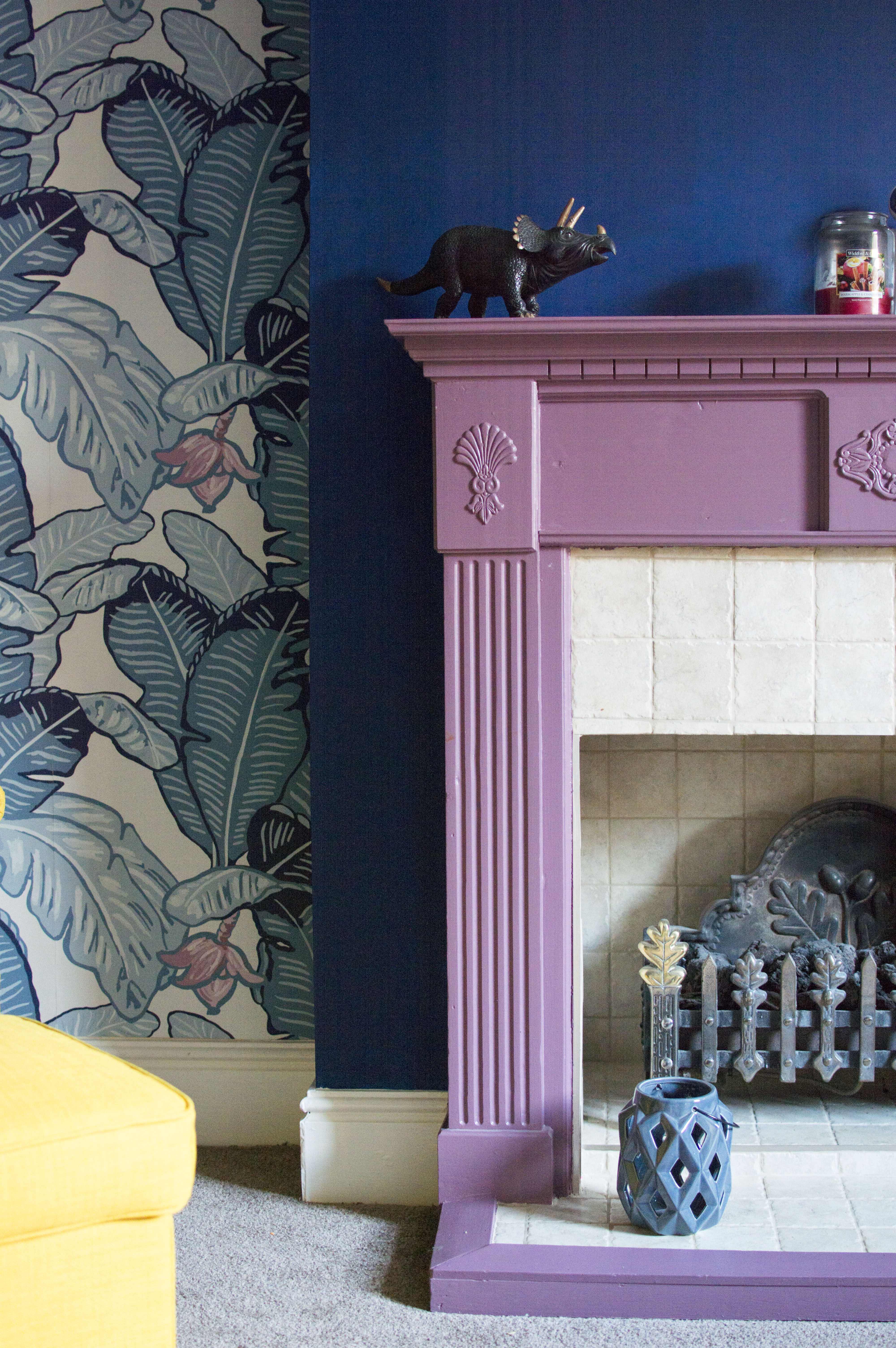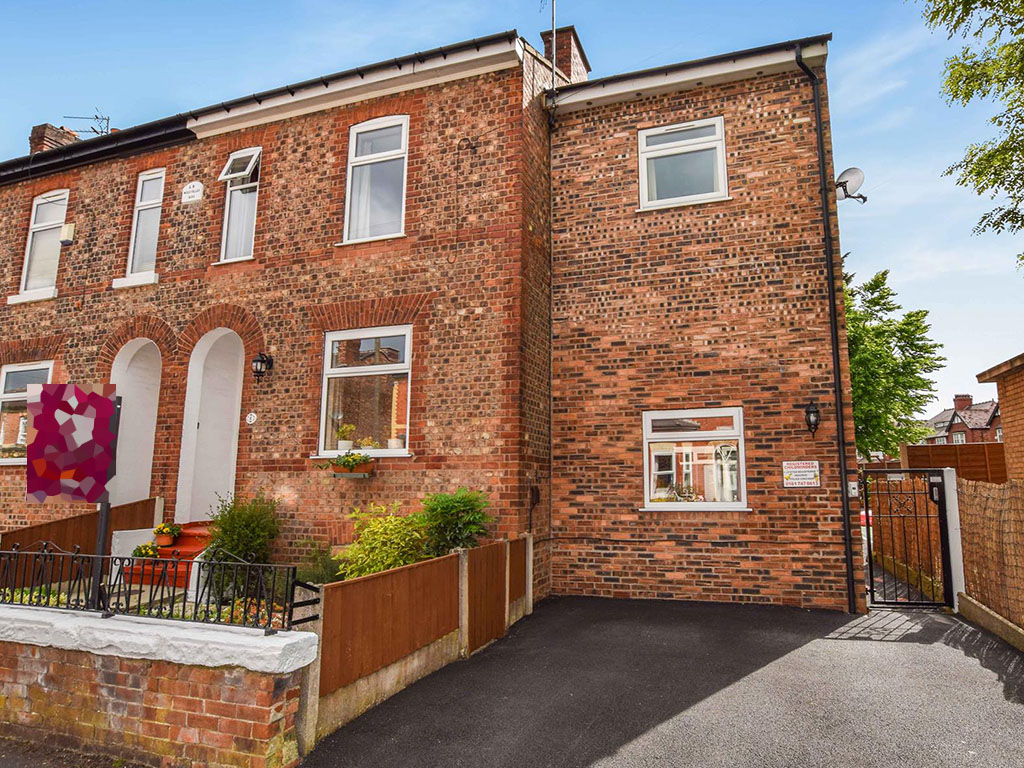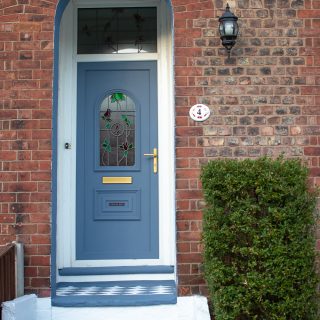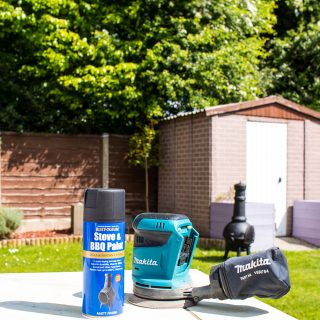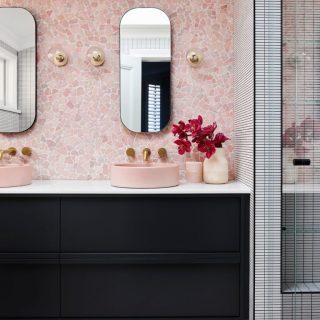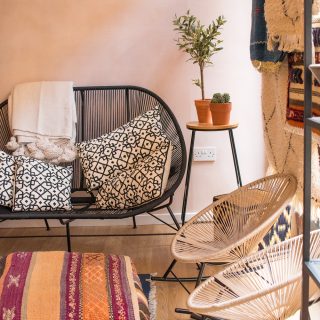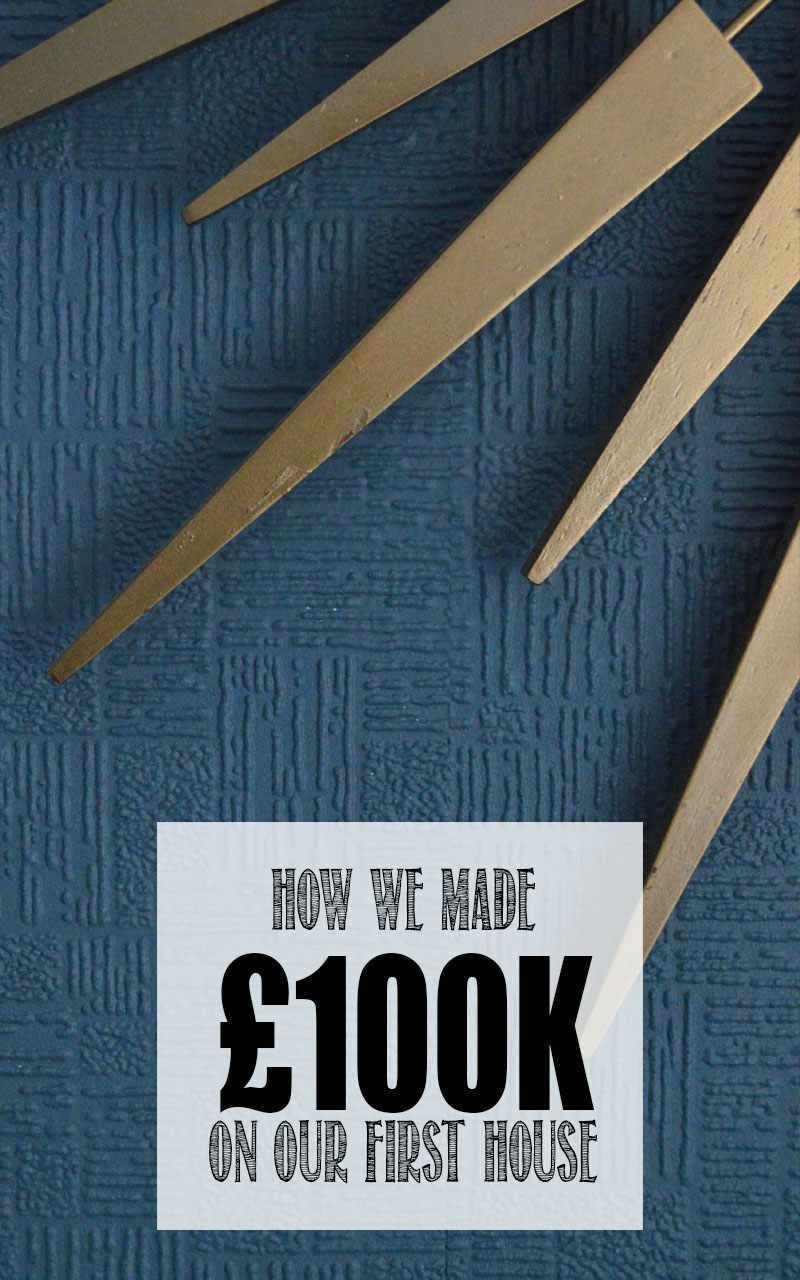
Let me be completely honest and say I feel really apprehensive about publishing this post. But it’s one of my most frequently asked questions so I’ve decided to bite the bullet and answer the public.
Today, we’re talking about money.
Specifically, making money through property. It’s something I have some experience now having renovated our first home to a sizable profit, as a stepping stone to the bigger family home we dreamed of… But I am most certainly not a property developer expert. Saying that, I do hope I can provide something of use to so many of my readers who are looking to get on the property ladder.
So let’s begin. As of the end of September 2017, we moved into our new home (house tour here – so exciting!) after spending 6 years revamping our first, one paycheck at a time. The house jump was a big one – from a 3 bedroom semi to a 5/6 bedroom Victorian, and so we get asked a lot about money and how we afford to make that happen.
“A bit rude” I originally thought, but upon reflection it was a genuine request for advice. It seems, no-one really wants to talk about figures. At least, not without trying to sell you something. This is my offering to those needing a bit of guidance when your bank, mortgage advisor or whoever else hasn’t been able to help. No strings attached. Just my own experiences and learnings laid bare.
Here are the factors you need to be aware of, in my humble opinion, whether you’re looking specifically for a house to make a profit on, or to ensure you buy a house that will retain its value.
Know the difference between price and value
We bought our house, a modest 1930’s semi-detached in 2011 as first time buyers – for a price of £134,000. Now, I’m going to talk numbers throughout this post but let us remember that every area is different and what might sound extortionate to some, will appear like a bargain to others. It’s all contextual. Fast forward to Autumn 2017 and we sold up for £253,000.
I know the title of this post refers to £100k, but it doesn’t takes a quick whizz on the calculator to see that the house actually increased in value by £119k. (Our original valuation was at £261,000 but for legal reasons which I won’t go into, it was altered. Needless to say, having a cash buyer actually could have earned us even more!)
It’s worth noting that our house in 2011 was on the market for a little more than we paid for it (£140,000) but due to the sheer amount of work that needed doing, we offered a smaller number. We had nothing to lose so could afford to be cheeky! At the time, the average house price on that street was £160-170,000 so we knew that by bringing the property up to a livable standard like the rest of the area meant we’d at least make our money back.
Fast forward to 2017 and looking to purchase another property only to find that the situation had changed. We found that houses – even incredibly rundown ones – were not budging on price. One estate agent explained it to me like this:
“The Price it’s put on the market for is what it’s worth for the benefit of your mortgage lenders and property reps. The Value is what it’s worth to you“. Understanding this difference will help you spend money in the right ways.
Buyers vs sellers market
For those unfamiliar with these terms, it’s essentially a reference to whoever has the ‘power’ when it comes to purchasing property. At the time of buying our first house, the market was slow, and if someone was desperate to shift a property, they were more likely to be flexible with the offers they’d accept. This was the case when we bought in 2011 and it is an example of a buyers market. The ball was in our court as a buyer.
Currently – in our area at least in South Manchester and as I’m writing this at the end of 2017 – it is most definitely a seller’s market. The area is well sought after with good schools and those who are selling properties are fully aware of that appeal. As a result of this, prices are inflated and are rarely negotiable. The days are long gone when you can make an offer lower than what is advertised. But the time will come again. The housing bubble always bursts at some point.
So if you want to buy a house with the purpose of making money on it, definitely aim to buy when you have the power of negotiation, and selling when you know that the demand is there to meet the price you want to sell for. This isn’t something you can always control, but paying inflated prices when it’s a sellers’ market can risk you ending up in negative equity down the line. Don’t put all of your eggs in one property basket unless you think it will be your forever home.
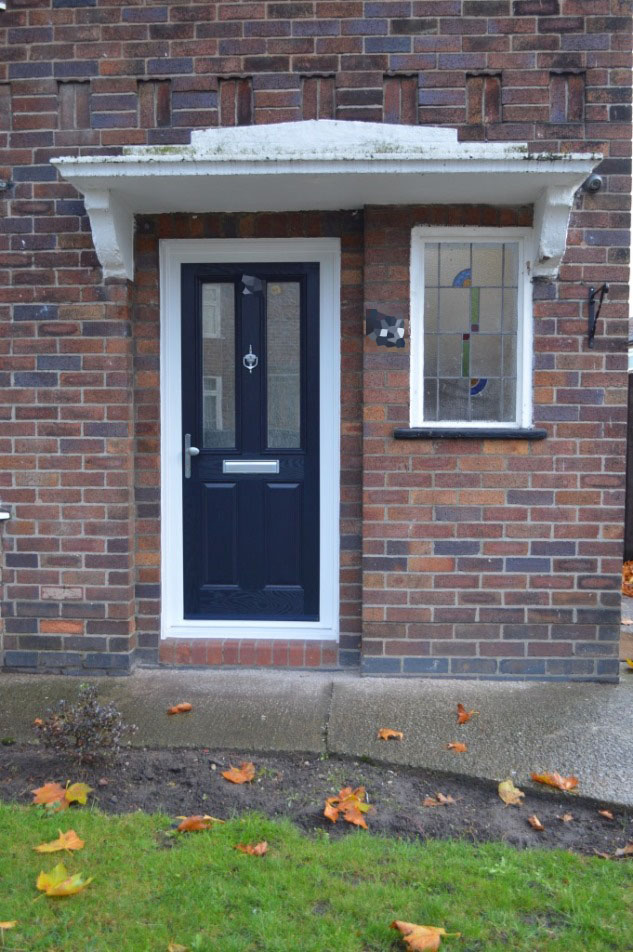
Location, location, location
The property market will always fluctuate, but the one thing you can choose is location – and this is definitely one factor that can help you determine where you can not just retain value in a property, but add serious value.
Before finding the house we’ve now moved into, we made offers on a number of others. One in particular was a beautiful Victorian mid-terrace extended very tastefully and in the catchment area of the school we have our heart set on for Luna. It went on the market for £350,000. (This in itself is a high price tag per square foot, and was likely half that price only a few years ago.)
Due to high demand in the area, it went to a closed bidding scenario. We offered £360,000 in the hope that a little extra cash would sweeten the deal. (Can’t believe in this context £10k is a “little extra”). It ended up selling for £420,000. Dudes, that’s £70,000 over the asking prince. There were 10 families who made an offer in the 12 hours it was open for sale, and we were 7th in line. Why? Because it was a nice house in an incredibly desirable area, and the demand was high. That’s all it took. I’m sure we all have *those* areas nearby which we know full well everyone wants to be a part of. The estate agents are aware of it, and won’t want to advise their clients to go any lower in price.
Remember what I said above price vs value? That was a lightbulb moment for me and I urge anyone else to remember those words if you’re in a bidding war on a property. Sometimes what you’re paying for may just be the postcode. Think carefully about what you can’t live without and put a maximum budget on it. For us, getting our daughter into a good school was paramount and were willing to stretch the budget to do so if necessary – within reason.
Another piece of priceless advice on location we were given, and I think is the key reason we made a profit on our first home: Always look for the worst house in a great area rather than a great house in a bad area.
Everyone has a different idea as to what makes an area good. But generally speaking, if you are noticing that new bars and shops are opening in a town, it often means they are seeing an influx of cash from their community, and is a good sign that houses will keep their price. The same goes for catchment areas of good schools. Whether you have kids or not, pay attention to the Ofsted results for schools if you’re interested in house value. It matters.
In 2011, we picked the most rundown tired-looking home in a lovely quiet suburb, and that meant we quickly made money just by bringing it to a basic standard of living. If you’re new to househunting, and aren’t sure where to start, look at an area and look at the average house values per postcode, and how that’s changing over time. Zoopla can tell you if an area is on the up or not.
Brush Up Your DIY Skills & Know Where to Invest
Let me say openly that our house profits were in some ways a happy accident but certainly made happier by years of hard work in addition to a very good purchasing decision in 2011. But these things don’t just happen.
If you are considering a renovation or fixer upper house as a way of making money, let me start by saying you’re more likely to break even than make a profit in the current economic climate – particularly if you use tradesmen. I know that’s not always the most popular news alert, but it’s true.
Housework is incredibly expensive, moreso when you have a lot to tackle but it will also add value in time. My personal advice from doing it on our first house was to live through it if you can to avoid paying both a mortgage and rent, and where you can, brush up on your DIY skills.
Joe taught himself how to plasterboard walls, how to alter pipework, how to tile, how to plumb and so much more! We probably saved thousands of pounds by avoiding trade costs. (Caveat – some things are worth getting the pros in. Electrics, gas, that sort of thing. Don’t risk your safety to save a few quid.)
If you want more concrete ways to add value though, these elements will make sure you can sell a house for as much as possible:
- An efficient central heating system
- Full double glazing throughout
- A tidy garden, front and back
- A good-sized kitchen. If you’re going to extend anywhere, make it this room
- A modern bathroom with separate bath & shower where possible
They’re not always the sexiest things to spend money on, but ultimately people want somewhere safe and warm before they want marble worktops.
Go back and see all the progress we made:
Lounge | Kitchen | Hallway | Master Bedroom | Bathroom | Nursery
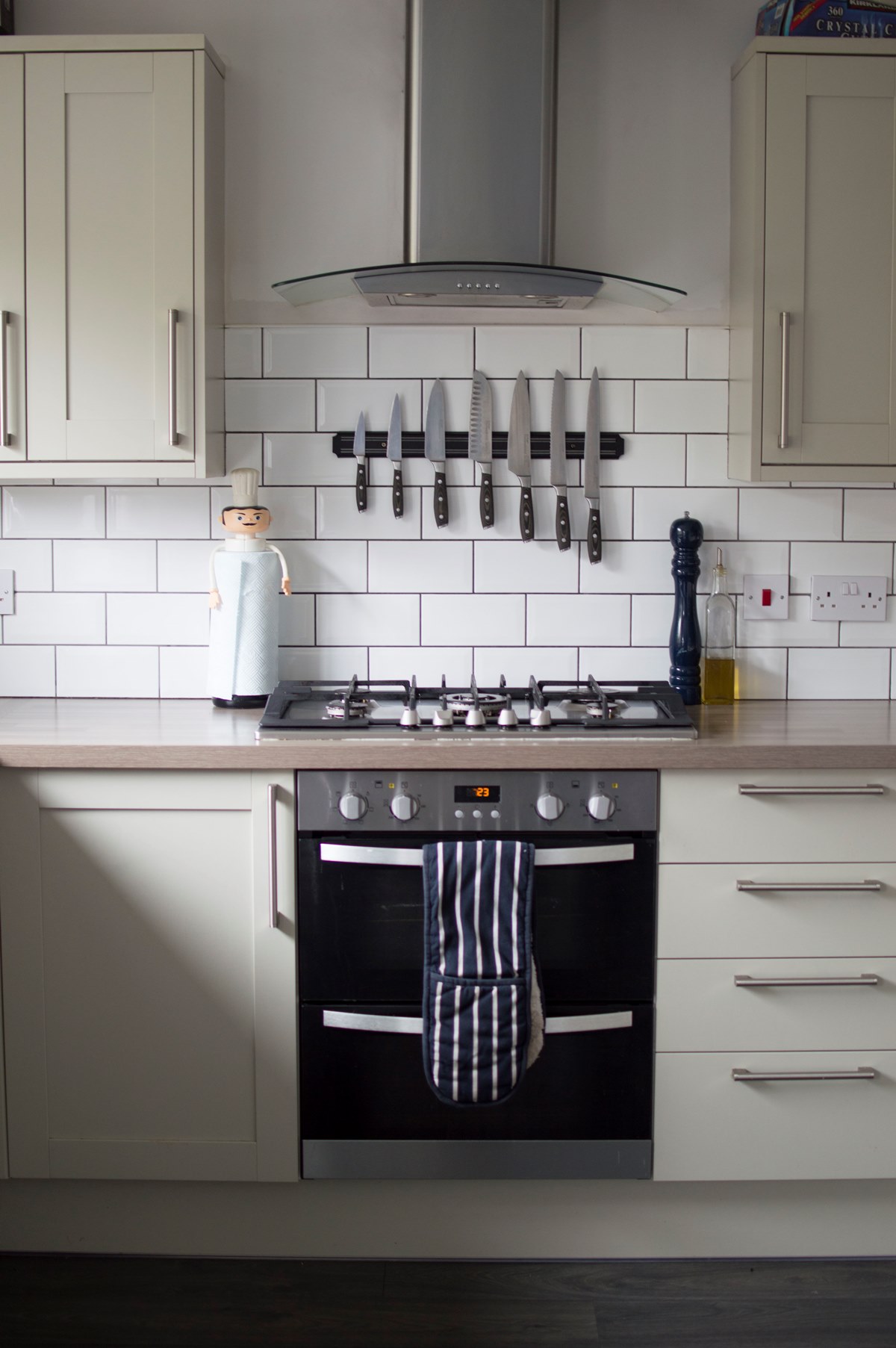
Borrow A Deposit
This might be a controversial one, and let’s remember that you should never ever borrow beyond your means. But if you look at it in black and white, saving up for a deposit whilst you rent is expensive. It’s in fact more expensive than if you are paying a mortgage and paying back a deposit (in my experience and opinion).
So you may as well be paying back the cheaper amount of the two but in the comforts of a property you own, right? The obstacle is the deposit.
Whether you are in a position to borrow from family, or take a cheap loan, if we had saved for a deposit whilst renting, we probably still wouldn’t have a house at all. (For reference, our rent for a 2 bedroom apartment was just shy of £700 at the time we decided to purchase a house. Our monthly mortgage for a 3 bedroom semi-detached turned out to be around £450.)
So for us it was a no-brainer. We took a private loan for our deposit and paid off the outstanding balance from the profits made from renovating that home, playing the long game.
Sidenote: Make sure you can afford the extra bills that owning a house entails. I don’t condone borrowing money for the sake of it, but certainly worth a quick calculation to see whether it could be cheaper for you.
Understand Profits Vs Moving Costs
This factor will depend on whether you’re a first or second time buyer. And are you planning on moving again in the future? It’s often said that in order to retire in a larger house, you cash in when the going is good and make a leap. Do this a few times and you end up in the house of your dreams, whatever size and shape that might look like.
What isn’t said in this scenario is that you’ve got to consider moving costs.
If you’re both buying a selling a house, you’ve got estate agents costs to consider, moving costs and then the likes of stamp duty (a total killer), in addition to your deposit, land searches and legal fees.
It’s an obscene amount of money when you think about it.
Furthermore, if you’re moving with the intention of making a profit, calculate it properly. If your property increases in value by £20,000 but it will cost you £20,000 to move, is it actually a good time to move financially? Only you know that, but don’t forget to factor these into your equity for a more accurate view to how much wiggle you have to fund your move.
Final Word
Never ever mistake equity with wealth. We may have been really lucky with our house profits but does that mean I have £100k sat in the bank? Absolutely not. We’re just now the proud owners of a heftier mortgage. Property is an expensive game, and it doesn’t always pay off until years later, so whatever you do, look for properties you would love to call home and always live with what you can afford.



